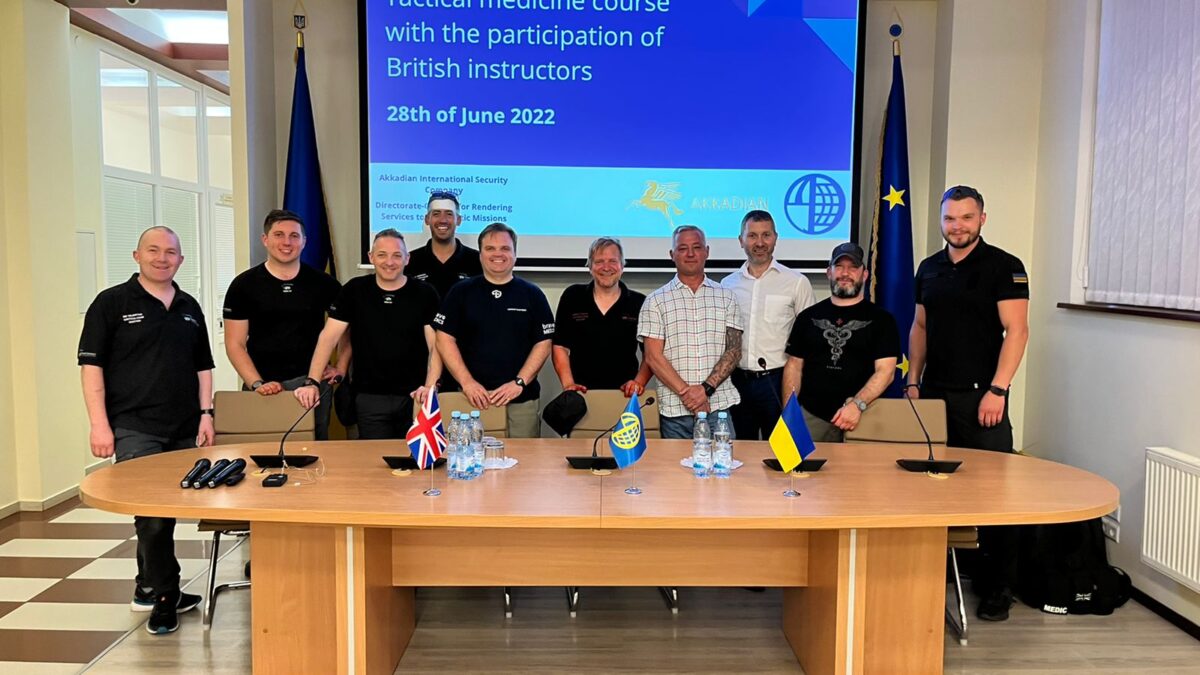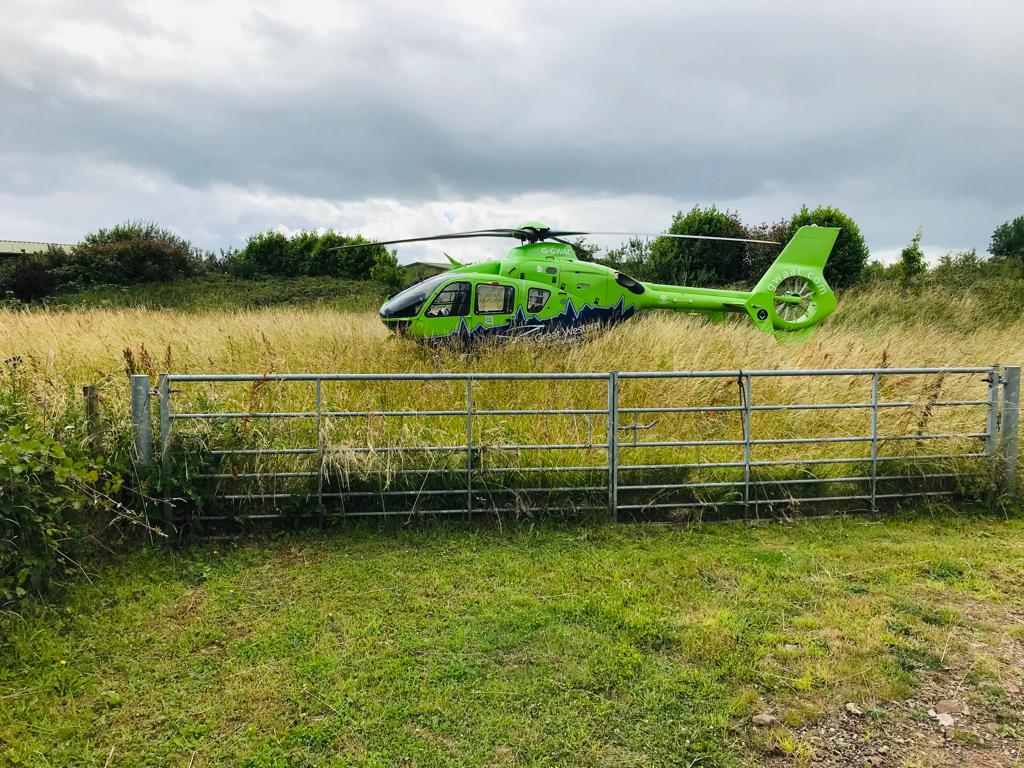
Supporting GWAAC through a cost of living crisis
July 7, 2022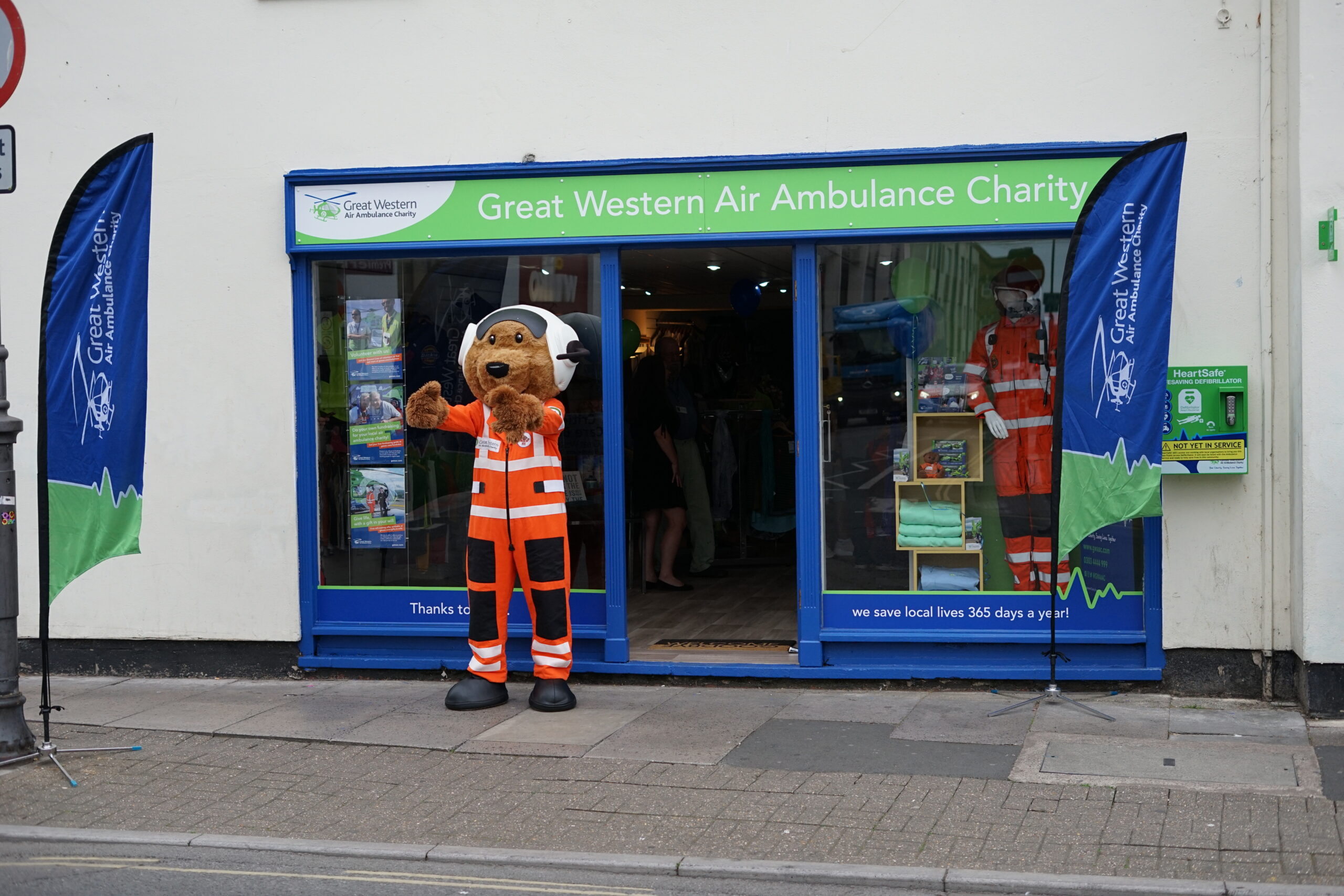
GWAAC Shop Cheltenham now open
July 13, 2022Add together six critical care specialists with the skills and desire to help, several bags of medical supplies and one generous private funder, and you’ve got the capability to teach first responder care to civilians in Ukraine.
It’s in their nature to want to help
Great Western Air Ambulance Charity’s (GWAAC) Critical Care Team is a select group of highly skilled individuals who can make a huge difference to people in urgent need of lifesaving pre-hospital care.
Our Critical Care Doctors and Specialist Paramedics in Critical Care (SPCC) are professionals in every sense of the word, and it’s in their nature to want to help people whenever and wherever they can.
So, when an opportunity came up to help in Ukraine, Critical Care Doctors, James Tooley, Ed Valentine and Andrew Heavyside, along with SPCC’s Pete Reeve, Callum Sutton and Matt Robinson, didn’t think twice.
How and why the trip came about
A combination of influencing factors came together at the right time to enable this special mission to go ahead. Namely, the willingness of the crew, additional funding from a private source, as well as the contacts and logistical knowledge acquired by Dr James and Dr Ed on a previous visit to Ukraine where they tried to help some very sick children.
The group went as volunteers with the full support of GWAAC.
GWAAC is known for being one of the best Pre-hospital Emergency Medicine (PHEM) training centres in the country. Teaching other medical professionals how to deal with the most serious of trauma injuries is one of our skillsets. The group of volunteers would provide gold standard medical training to people in Ukraine; people who otherwise wouldn’t have received it.
The group of volunteers went to Ukraine prepared to respond to local needs and demands, and to pass on their knowledge to groups of people who were best placed to receive it. These people would then be better prepared to respond to trauma incidents when needed.
So, with the will to go, the skills, the funding and the kit supplies, there was still one important aspect to arrange — security. The trip was only ever going to be possible with some form of protection for the group. This came from a private security firm and a High-Risk Advisor called Joel Bennet who is an experienced medic specialising in austere environments. Joel stayed with the group throughout the trip, keeping them updated on the developments in the conflict in Ukraine.
Helping civilians in Ukraine
In the early hours of Sunday 26 June 2022, the group set off on their 25-hour journey to Kyiv. They reached the Polish border about midday and got to Ukraine by mid-afternoon. They drove two hours to Lviv and remained overnight because of a curfew. The next morning, they continued their journey through Ukraine to Kyiv, teaching first responder care to civilians on Tuesday and Wednesday.
They taught around 60 people in total. That’s 60 people with no previous medical training who were mostly office workers from the Embassy such as diplomats and ambassadors. Office-based workers in Kyiv are at increased risk of a missile strike and those who travel between towns and cities as part of their role, are also at risk of landmines and ambush.
The training was delivered through translators which slowed the pace a little but SPCC, Pete Reeve said, “it was pretty straightforward.”
The training covered themes such as how to stop bleeding, using a tourniquet, giving CPR and the triage process. Pete says, “triage is important. If their building is hit by a missile, they need to be able to identify which injuries are most severe, so they know who to treat first.”
As well as receiving training in lifesaving first responder care, the trainees were given supplies of tourniquets, dressings, and bandages. The volunteers also left behind some specialist paediatric equipment for an intensive care unit in Kyiv and two fully-equipped response bags, dressings and iGels for frontline hospitals — the security firm took the equipment forward to the frontline hospitals.
The impact of the trip
The intention of the trip was to have as big an impact as possible within a relatively short space of time. You might wonder, what can six people really do that will make a difference in such a vast country at war? The answer is simple, but it comes in three parts:
- To provide the best possible medical training to a group of people who would benefit the most. In this case, government employees with little medical experience who are more likely to be in a targeted building, e.g. a Foreign Office, than the general population. The training would give them the know-how and confidence to administer lifesaving first aid
- To equip those civilians with lifesaving equipment such as tourniquets and dressings. In their day jobs back home, the Critical Care Doctors and SPCCs have access to highly specialised equipment to deal with all sorts of injuries and medical emergencies. But in Ukraine, they are short of everything, so it’s the simple things, like a dressing, that could save a life
- To give the trainees the skills, confidence and equipment to pass on to others and cascade down through their community; to help make them self-sufficient.
SPCC, Pete said: “60 people received high-quality medical training they otherwise wouldn’t have got. One attendee came both days and told us how overnight she had been teaching her family what she had learned during the day. It’s a very sobering thought; that for them, the missiles, the bombing, the loss of loved ones… is a very real threat. We encouraged them to pass on their new skills to as many people as possible. We gave them the knowledge, the confidence and the medical supplies to deal with things. And they were just so very grateful.”
Keep your eyes peeled for the next blog in this series, which will share the thoughts and experiences of our GWAAC Critical Care Doctors and SPCCs who volunteered to help in Ukraine.
The loss of loved ones… is a very real threat. We encouraged them to pass on their new skills to as many people as possible. We gave them the knowledge, the confidence and the medical supplies to deal with things. And they were just so very grateful

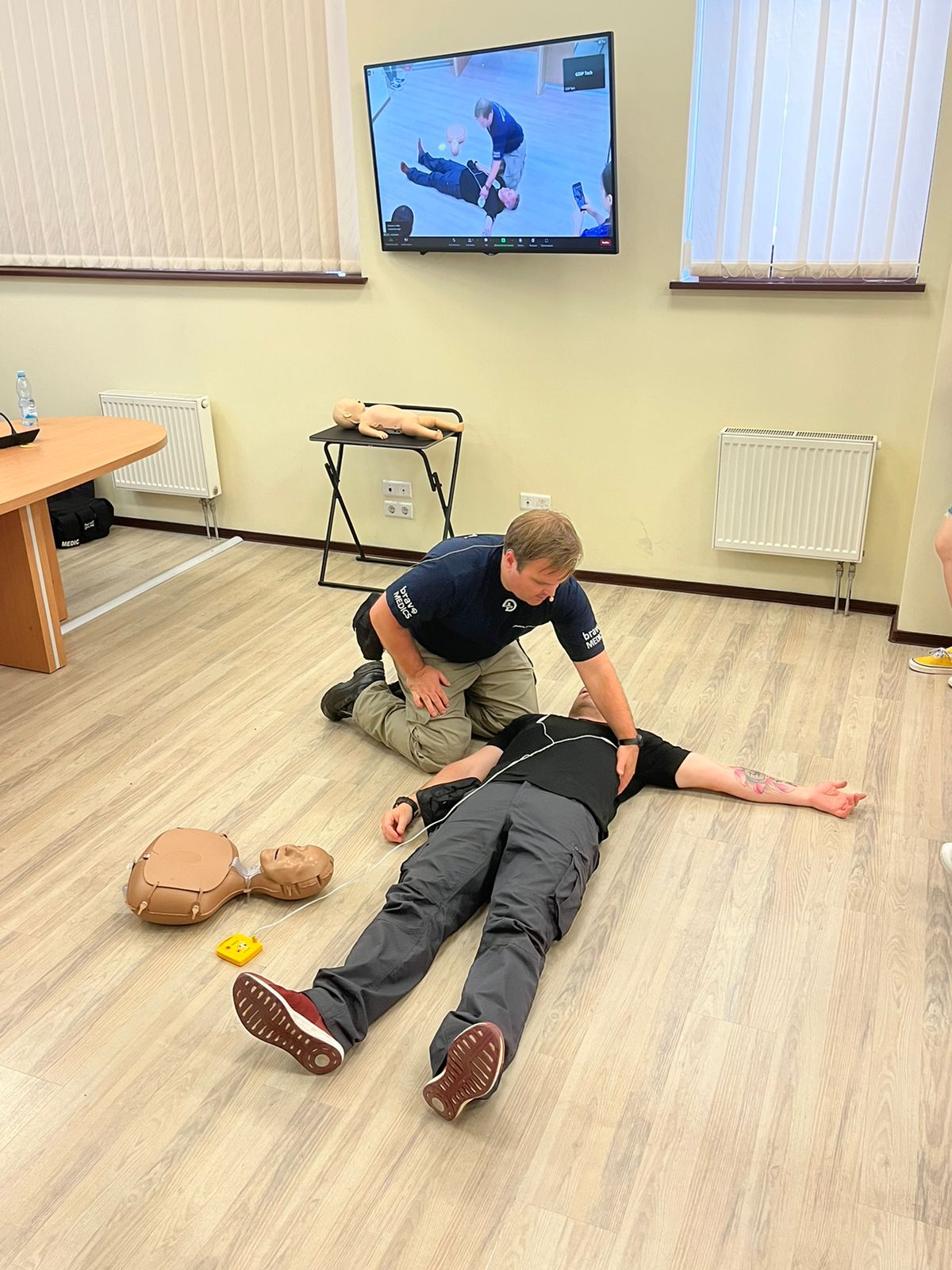
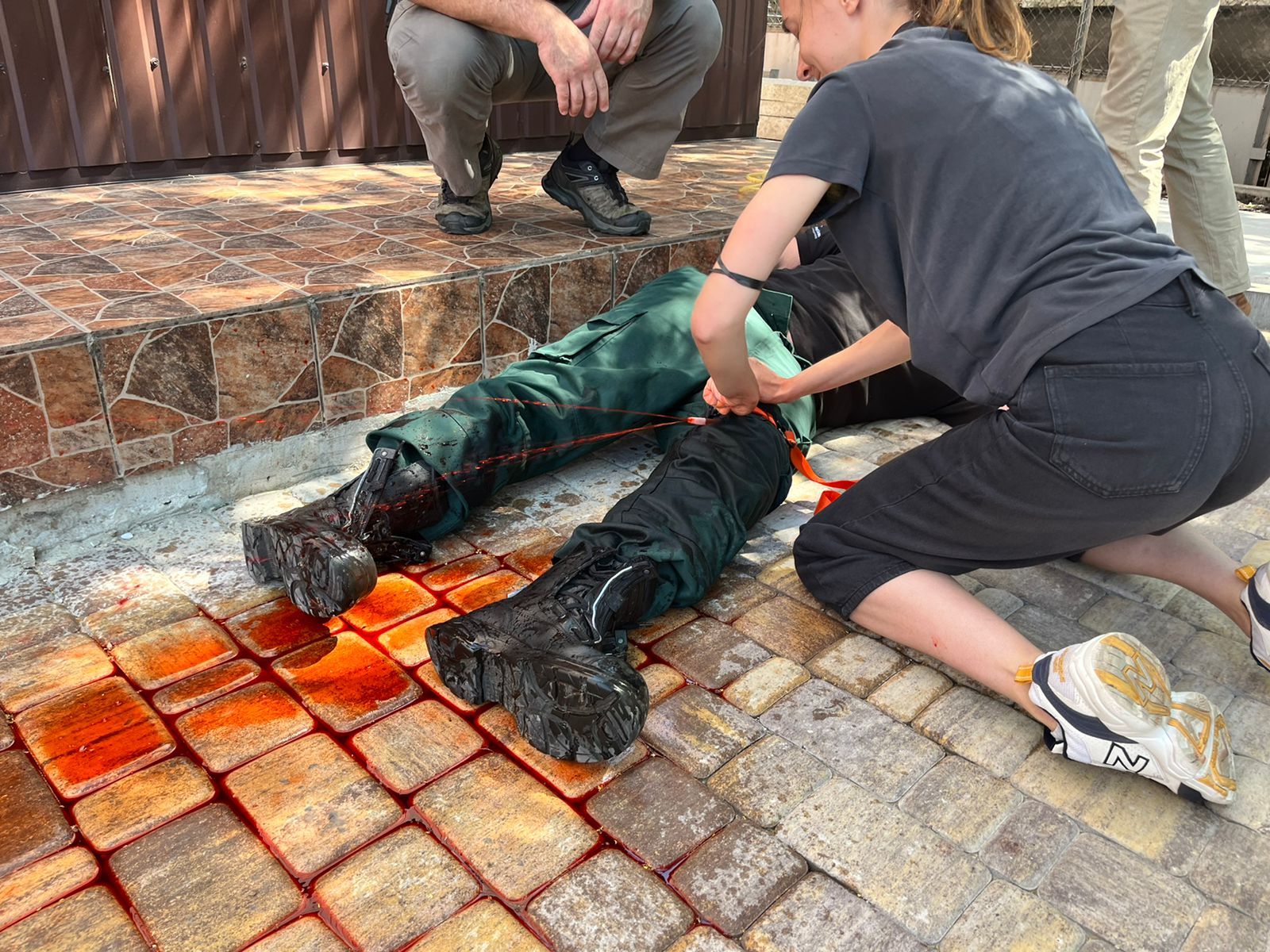
Using a soft drink as fake blood to make the training more realistic
